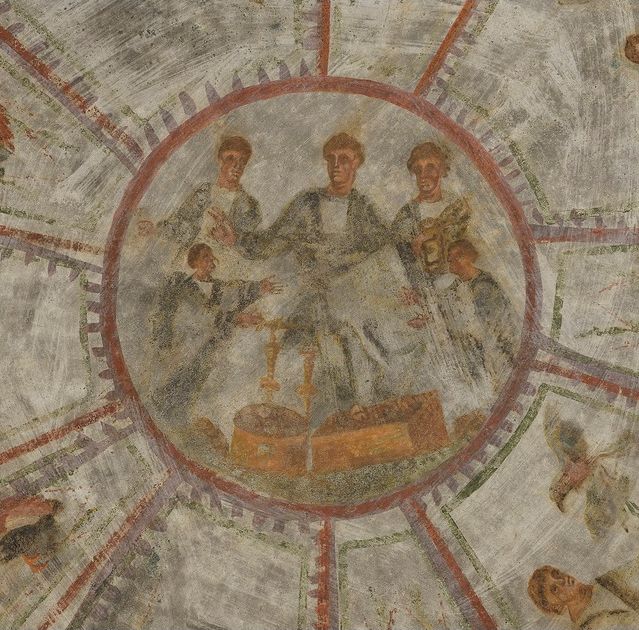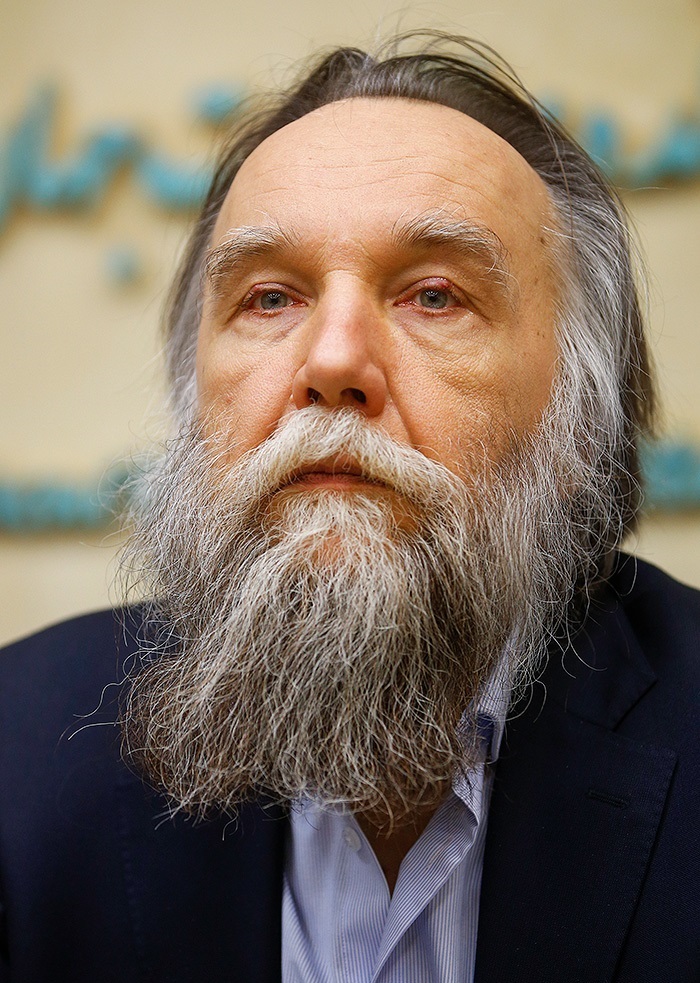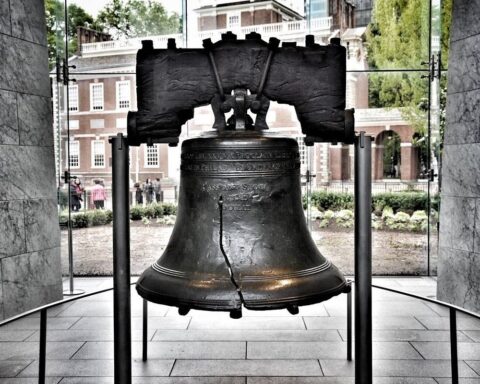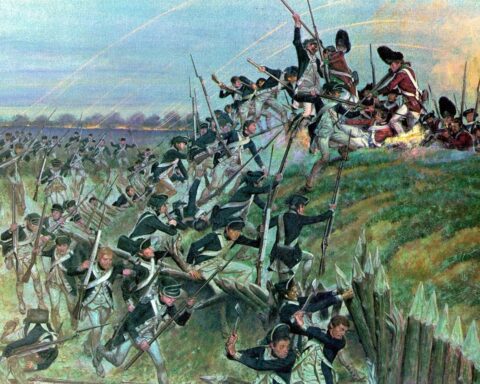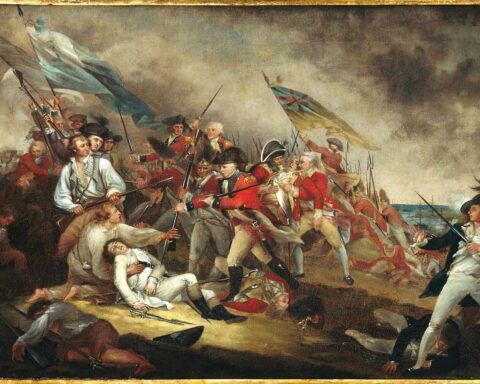Editor’s note: The following is extracted from Historical Essays, by J. B. Lightfoot (published 1896).
On the last three Tuesdays your attention has been directed mainly to the social conditions of present and recent ages. I must ask you now to transfer yourselves in imagination to a period dating sixteen or seventeen centuries back. I offer no apology for thus suddenly shifting the scene. While it is necessary to face the problems of the present, it is not less important to review the experiences of the past. If we can only read them aright, the records of the difficulties, the sufferings, the triumphs of early Christianity are replete with lessons of immediate interest. And in some respects the past may claim a preference over the present. The study of contemporary religion and politics will always exercise the most powerful fascination over our minds; but it is beset with the most serious disadvantages. In the first place, we approach the subject with the blind partiality of men who have taken a distinct side in the conflicts which they are reviewing. In the next, as we are placed in the very midst of the events, our point of view is necessarily confused, and we are incapacitated from estimating correctly their proportions. The individual soldier, who is fighting for his life amid the roar of guns and the flashing of steel, is the last man to give a faithful account of the dispositions and the manoeuvres by which the victory is lost or won. Only when we take up a position aloof from the field of action can we duly appreciate the relations of all the parts in the great battles of history.
In the three lectures which are allotted to me, I purpose dwelling on some aspects of Christian life in the second and third centuries of our era. For the most part my illustrations will be drawn from the period of the hundred and fifty years which followed upon the close of the first century. My starting-point, therefore, will be marked in secular history by the accession of the Emperor Trajan, and in ecclesiastical history by the death of the last surviving apostle, St. John; for the two events were nearly coincident. My reason for confining myself to these limits is this. I am anxious to exhibit Christianity as an independent force, working in and by itself, without the aid of any extraneous supports or any peculiar advantages. Thus I exclude, on the one hand, the ages when the special influence and extraordinary inspiration of the Apostles might be thought to exempt the Church from the common experiences of history. And on the other hand, I stop short of the time when, under Constantine, the Church entered into an alliance with the State, and it becomes difficult henceforth to estimate how far its triumphs should be ascribed to its own inherent power, and how far to the support of the civil arm. During the period to which I restrict myself, there is no disturbing element in the calculation. Whatever successes it achieved were due solely to its own vital energy, i.e. to the working of Christian ideas through the Christian society.
And I do not know how I could better strike the keynote to our investigation than by quoting, at the outset, a remarkable description of the early Christians by one of themselves, who appears to have lived close upon the confines of the Apostolic age. The writing from which the extract is taken—the Epistle to Diognetus—is a fragment without a name and without a date, a single page torn out of the vast volume of Christian literature in the second century, which, with a few meagre exceptions, has altogether perished: a mere scrap saved from the ravages of time, like one of those fabled Sibylline leaves, borne fluttering on the winds, coming to us we know not whence, but traced in characters instinct with an energy and a life which is not of the earth.
“Christians,” says this anonymous writer, “are not distinguished from the rest of mankind either in territory or in speech or in habits of life. For they neither dwell in cities of their own, nor use any different language, nor practise any strange fashions. But, while they dwell in cities either Greek or barbarian, according to the lot of each man, and observe the local customs in their dress and their food and all their ordinary habits, yet in their own mode of life they exhibit a conception which is marvellous and confessedly unique. They dwell each in his own country, but they dwell there as sojourners. They share every duty as citizens, and they suffer every indignity as foreigners. Every foreign country is a fatherland to them; and every fatherland is foreign to them. They marry, like all men; they beget children, but they do not destroy their offspring. They spread a common table, which yet is not common. They are in the flesh, but they do not live after the flesh. They pass their days on earth, but they have their citizenship in heaven. They obey the established laws, and they surpass the laws in their lives. They love all men, and they are persecuted by all. They are unknown, and yet they are condemned. They are put to death, and yet they are made alive. They are paupers, and they make many rich; they lack all things, and they abound in all things; they are dishonoured, and they are glorified in their dishonour; they are calumniated, and they are justified; they are reviled, and they bless; they are insulted, and they respect. Doing good, they are punished as evil-doers; punished, they rejoice as being made alive. By Jews they are assaulted as foreigners; and by Gentiles they are persecuted; and their haters cannot assign the cause of their enmity. In one word—what the soul is in the body, this Christians are in the world. The soul is dispersed through all the members of the body; and Christians throughout the cities of the world. The soul dwells in the body, but is not of the body; so Christians dwell in the world, and are not of the world. The soul, being invisible, is imprisoned in the body, which is visible. So Christians are perceived to be in the world, but their piety remains invisible. The flesh hates the soul and wars against it, though it suffers no wrong, because it is prevented from enjoying pleasures. So the world hates Christians, though suffering no wrong, because they are opposed to pleasures. The soul loves the flesh and the members which hate it. So Christians love those that hate them. The soul is enclosed in the body, and yet itself sustains the body. So Christians are shut up in the world as in a prison-house, and yet they themselves sustain the world. The soul being immortal dwells in a mortal tabernacle. So Christians sojourn among corruptible things, while they await the incorruption that is in heaven. The soul, by hard fare in meat and drink, becomes better. So Christians, when punished, increase more and more from day to day, so noble is the post which God has assigned to them, and which it is not lawful for them to decline. For, as I said, this is no earthly invention which has been delivered to them, nor is it a plan of human devising which they hold it a duty to guard thus carefully. But in very truth God Himself, the Almighty and All-creative and Invisible, God Himself from heaven planted among men the Truth, and the holy and incomprehensible Word, and established Him in their hearts : not sending to men, as one might imagine, some inferior officer or angel or ruler, or one of those beings who have the guidance of things terrestrial, or of those to whom is committed the administration of the heavens, but the very Artificer and Creator of the Universe, by whom He made the heavens, by whom He enclosed the sea within its proper bounds, whose mysterious ordinances all the celestial bodies faithfully obey…. Did He send Him, as any man might conceive, to establish a tyranny, or to inspire fear and alarm ? Nay, not so, but in gentleness and meekness. He sent Him as a king sending his son, a king. He sent Him as being God; He sent Him as to men; He sent Him, as saving, as persuading, not as compelling: for compulsion has no place with God. He sent Him, as inviting, not as persecuting; He sent Him in love and not in judgment. For He will send Him in judgment, and who shall abide His presence? Seest thou not how His servants are thrown to wild beasts, that they may deny their Master, and yet do not succumb? Seest thou not, that the greater the number of those punished, the more does the number of the others increase? These things are not like the works of man: they are the power of God; they are tokens of His presence.”
I do not know what impression this passage may have made on my hearers; but to myself it seems to embody the very spirit of the Gospel. In its thrilling earnestness and its lofty simplicity, its undaunted courage and its unbounded hope, it presents to us the liveliest picture of the struggles and the aspirations and the victories of Christianity in the early ages. Compare it, if you will, with the noblest utterances of heathen sage or moralist of the time, with the righteous dogmatism of an Epictetus or the plaintive aspirations of a M. Aurelius; you will see at once that it soars into a loftier region than any of these. There is an energy and a vitality in it, a consciousness of strength, a capacity of endurance, and an assurance of triumph, which is wholly different in kind from the religious sentiments of heathendom. And if you ask an explanation of the difference, if you probe the secret of this novel force, you will find the solution to be very simple. The writer himself leaves you in no doubt about this. He does not refer you to the moral precepts of the Gospel, or to the social organization of the Church, or to the philosophical dogmas of Christianity, but to a Person and a Fact. Not a word is said about any of those five causes which Gibbon parades before his readers when he attempts to account for the unparalleled triumphs of Christianity—the pertinacious zeal of the Christians, and the alluring promises of future bliss, and the miraculous powers claimed by the primitive Church, and the austere morality of the new society, and the efficient discipline of the body. These, so far as they are causes, are only secondary causes; they are not the root and stem, but only the leaves and fruit of the great tree which was to overshadow the earth. The root itself, as this writer conceives it, is the incarnation of the Divine Word, the realization of God’s love and God’s presence through the human life and death of Christ. Here is the mainspring of this unique energy, the hidden source of this new and vigorous life.
And the life itself? In a few simple and bold touches it is described to us. The description consists of a series of contrasts arising out of the fundamental position of the Christian. The Christian inhabits two worlds, lives two lives. To each of these he has direct obligations. These spheres, however, are not distinct and apart, but constantly intersect and overlap each other; and the great problem which must engage the attention of every conscientious man is how he can harmonize these claims. The conditions of the problem will differ in various states of society; but in some form or other it must always press for solution. It is as fresh to you and to me today as it was to any member of this small and persecuted sect more than seventeen centuries ago. But to the early Christian the problem was beset with the most cruel perplexities, from which we happily are free. At every turn the question presented itself, “How am I at once to render to Cæsar the things which are Cæsar’s, and to God the things which are God’s?” and he must be ready with an immediate practical answer. How he solved the problem it will be my business to show in these lectures.
Keeping this object therefore in view, I think that the history of Christian life in the early centuries may be conveniently treated under three heads. In the time which remains to me this evening, I shall speak of the relations of the Christian to society. Next Tuesday I hope to discuss with you his position as regards the law and the government, or (in modern phrase) the relations of Church and State. And in my third and last lecture, I intend to say something about Christian worship in these primitive times. The first subject has no fixed centre about which it will revolve. The interest of the second will gather about the martyrdoms. The third will be more or less localized in the catacombs.
Following out this plan, and treating this evening of the Christian in relation to society, I shall confine myself to three points, which will be sufficient to occupy my time—the social position, the social difficulties, and the social triumphs of the early Christians.
It was a constant taunt of the early antagonists of Christianity, that the new religion did not recruit its ranks from the most exalted or the most intellectual or the most respectable classes of society. The philosopher Celsus, who appears to have written about the middle of the second century, makes it a matter of reproach that the active members of the sect were wool-workers and cobblers and curriers, the most ignorant and boorish of mankind, who were marvellously eloquent in a knot of women or boys or slaves, but had not a word to say for themselves when confronted with sensible men.
The taunt was an old foe with a new face. Long ago the question had been asked, as if the mere asking were sufficient to bar all further inquiry, “Have any of the rulers or of the Pharisees believed?” And now the language of the Jewish priests is unconsciously echoed by the Gentile sophists: “Have any of the princes, any of the senators, any of the philosophers believed?”
There was just enough foundation, in fact, for this taunt to arm it with a sting. It might not be so true now as it had been a century before, when St. Paul uttered the words that there were not many wise after the flesh, not many powerful, not many noble, either among the teachers or among the disciples of the new sect; yet still its converts would be drawn mainly from the less influential and the less educated classes of society. But what then? Was there any ground for assuming that either wealth or rank or education was a necessary condition of estimating correctly the claims of a religion which professed to disregard all conventional distinctions, and to address itself to man as man? This was not the first time, and it certainly will not have been the last, when the noblest and truest impulses, whether religious or moral, have worked upward from beneath. There was nothing in the social experiences of the high-born and wealthy, or in the technical education of the philosopher or the rhetorician, which peculiarly qualified them for appraising the worth of Christianity. Nay, just so far as the higher classes were removed from the hardest trials of their fellow-men, just so far as convention had chilled and stiffened in them the common instincts of humanity, they were absolutely incapacitated as judges. To mankind at large, with its sorrows and its sufferings, with its consciousness of sin and its aspirations after good, the Gospel message was addressed; and from them it found a ready response.
But, indeed, this was a dangerous weapon for the adversaries of Christianity to wield. It was wrested from their hands and turned with deadly effect against themselves. It had been the proudest achievement of Socrates that he brought down philosophy from the skies to the level of common life. But the Gospel achieved a far greater triumph. “Every Christian mechanic,” said Tertullian triumphantly, “has found out God, and can show Him to others”; though Plato said that it was difficult to discover Him, and next to impossible to communicate the discovery when made. This father contemptuously rejects what he calls the illusions of civilization. He turns aside from the training of the schools, and he addresses himself to the primary, unsophisticated, unencrusted consciousness of man: “I summon thee, O Soul, simple and rude and unpolished and unlearned, such as they possess thee who possess thee by thyself, the very real soul in its integrity—from the roadside, from the thoroughfare, from the weaver’s shop. I want thine inexperience, since thy poor experience is trusted by none. I ask for just what thou bringest to man, just what thoughts thou hast learnt either from thyself or from thy Creator.” “We do not talk great things,” wrote Cyprian, “but we live them.”
But in fact the allegation of Celsus was not true. If rank and knowledge did not form any special qualification for the acceptance of the Gospel, they did not interpose any serious barrier. Already, when Celsus wrote, the tide was rising, and it became evident that even the highest eminences of intellectual and social life must soon be flooded. Even in the earlier years of the Apostolic age the conversion of a Roman proconsul, Sergius Paulus, was an augury of ultimate victory. Before the first century had run out, a prince and princess of the reigning house, Clemens and Domitilla, the cousins of the Emperor Domitian, suffered for their adherence to the new faith. Soon after, about the year 110, Pliny reports to the Emperor that many “of every rank” were infected with the strange superstition. In the latter half of the second century Irenæus speaks more than once of Christians at the Imperial Court. At the close of the century Marcia, who was all-powerful with the worthless Commodus, seems to have been herself a Christian, and certainly extorted from him many concessions in their favour. About this time Tertullian, writing at Carthage, avows that Christianity had invaded every class of society, and that even official dignity was passing over to its ranks. And twenty or thirty years later, the Emperor Alexander Severus, if not himself a Christian, at least acted with friendly partiality towards the growing sect, while his mother corresponded with the greatest Christian teacher of the day.
Nor was it otherwise with intellectual culture. Already, when Celsus wrote, Christianity was receiving constant recruits from the ranks of philosophy. The Platonist Justin and the Stoic Pantanus, dissatisfied with the hollow professions of their respective sects, had sought and had found in the Gospel satisfaction for their deepest wants. Advance another half-century and the victory is unmistakable. With all his faults of taste and style, Tertullian stands out pre-eminent as the literary genius of his age. His fiery eloquence and his vivid imagination have no rival among his classical contemporaries. After all allowance made for his allegorical subtleties, Origen far outstrips the heathen thinkers of his time. We cannot name any classical author of that age who combines in the same degree the profound insight of the philosopher with the patience and the acumen of the critic.
But, not content with attacking the intellectual capacity and social rank of the Christian converts, Celsus did not spare even their moral antecedents. He urged that others who invited worshippers to initiation in their mysteries, strictly confined their invitation to those who were “clean of hand and wise of speech,” who were “pure from all contamination, and whose soul was conscious of no evil, who had lived a good and upright life.” On the other hand, the summons of the Christian was the very reverse of all this: “Whosoever is a sinner, whosoever is foolish, whosoever is a little child, (in one word) whosoever is a miserable wretch, he shall be received into the kingdom of heaven.” Whom do you mean,” he asked, “by the sinner? Why, of course, the dishonest and the thief and the burglar and the poisoner, and the robber of temples and the violater of graves.”
This was especially dangerous ground for the assailant of Christianity to occupy. While making the attack he had exposed his own flank, and the opportunity was not lost by the defenders. Wholly unconscious what an advantage he was giving them, he avowed the utter impotence of religion to effect any great moral reformation in a man, and he urged that it was next to impossible to change the character of one who was habituated to evil; and on this ground he objected to the Founder of Christianity that he came to “save sinners,” when he ought to have addressed himself to just men. The answer was triumphant. The Christian Apologist could point to hundreds and thousands of men who had been reclaimed from the worst vices by the Gospel, and were now living pure and honest and peaceful and self-denying lives. The bitterest taunt of the assailant was the grandest boast of the Apologist. If, on the other hand, the religion of Celsus could effect no moral reformation, that religion stood self-condemned.
But whatever might be his condition in life, the Christian found his path beset with practical difficulties. These would doubtless be greater in the higher ranks, and greatest of all in official circles; but the humblest Christian was confronted by them in almost every action of life. It is next to impossible for us to realize the ubiquity, the obtrusiveness, the intrusiveness of polytheism. A spiritual religion from its very nature does not force itself on observation in the same way. Just because it addressed itself to the outward senses, polytheism could not be evaded. All the public offices at Rome were connected with the sanctuary of some god. The temple of Mars was the war office; the temple of Juno, the mint; the temple of Saturn, the treasury; and so forth. Thus every official duty was bound up with some religious sanction. All commercial transactions, again, were represented by their appropriate deity. At the same time, when Roman civilization and enlightenment had reached their highest pitch during the reign of Augustus, the importation of corn from Egypt, on which the Roman populace largely depended for support, was deified, and a niche assigned to the new goddess Annona in the pantheon of Roman worship. This is very much as though, among ourselves, Free-trade were to receive the honours of an apotheosis. But the elasticity of polytheism was not confined to matters of general and public interest. Each several locality had its patron deity—the house and the field, the stable and the farmyard. Every sanitary regulation—even the sewage of Rome—was under the protection of some god. Every desire and every sentiment, every virtue—one might almost say, every vice—of man, underwent an apotheosis. Nay, so far did this passion for deification go, that there was hardly a ramification of human life, and hardly a development of human action, which was left unoccupied. With savage humour Tertullian parades the names of gods and goddesses who presided over the birth and nurture of a child—Edulia and Potina over its eating and drinking, Cunina over its slumbers in the cradle, Rumina over its suckling, Farinus or Locutius over its first lessons in talking, Statina over its first efforts at standing, with numberless others. Amidst this multitudinous throng of deities, the position of the early converts must have been difficult indeed. To keep themselves pure from idols, as it was their most elementary duty, so also was their direst perplexity. No wonder that to the careless heathen they appeared morose, reserved, unsympathetic, in private life. How could they do otherwise than abstain in great measure from the commonest interests of their heathen neighbours? No wonder that as citizens they were charged with want of patriotism. The affairs of state were too intimately bound up with the recognition of polytheism to leave them free.
The charge brought by the heathen historian against Flavius Clemens, whom I have already mentioned, is, that he was a man of contemptible indolence. His indolence was doubtless enforced. His principles left him no choice. In many provinces of public life it was impossible for a man to engage without entangling himself in the meshes of idolatry. Hence it is a common accusation against the early Christians that they were idle and unprofitable in public affairs. The Emperor would be left without an army, urged Celsus, if all men thought with the Christians. This was a gross exaggeration. “How can this be,” replied Tertullian, “with men living among you, having the same food, the same dress, the same appliances, the same necessities of life? With you we inhabit this world with its market-places, its shambles, its baths, its inns, its workshops, its fairs, its other places of common resort. With you we likewise engage in navigation, in war, in agriculture; we mix in commerce and in art like yourselves; we contribute our labour to your common good.” In vain the Christian apologists urged these patent facts; in vain they contended that, though in some respects the State might be the loser, yet it was more than compensated by their honesty, their sobriety, their orderliness, their benevolence. The charge was not altogether unfounded. There are epochs when even the obligations of patriotism must yield to the imperious claims of a higher duty; when the regeneration of society demands the sacrifice of every individual and local interest, of country, of home, of self, to its own paramount needs. At such a crisis the dislocation of all social and political relations is inevitable. Then amid the birth-throes of a new order the piercing cry is wrung from humanity in its agony and dismay. The great day has come which was foretold, when there should be “distress of nations with perplexity, men’s hearts failing them for fear.” But then also the hope, the deliverance, the light, is at hand. Men are bidden to look up and to lift their heads, for their “redemption draweth nigh.”
And not less perplexing was the position of the Christian with regard to common duties and interests of life. Look for a moment at the ordinary amusements of heathen society. It was a matter of common observation that the Roman people, besides their bread, cared for nothing but the public games. But the conscientious Christian was absolutely forbidden to take any part in these degrading spectacles. To say nothing of the religious character which attached to them, their moral aspect was revolting to the Christian mind. In our own age we hold it a disgrace to our common Christianity that one relic of these demoralizing spectacles should still linger in a European country—the bull-fights of Spain, the legacy of the Moorish occupation. But compare these with the bloody scenes of the Roman amphitheatre, and they pale into insignificance. The slaughter of a few bulls and a few horses now and then would have seemed tame and spiritless to a Roman sightseer. It has been truly said that the number of wild beasts slaughtered at a single festival in Rome would have more than stocked all the zoological gardens in Europe. When the theatre of Pompeius was dedicated, from 500 to 600 lions were hunted, besides other wild beasts from Africa. At the inauguration of the Colosseum, under the Emperor Titus, it is reported that not less than 9000 animals, wild and tame, were slain.
Nor do these instances stand alone. After all allowance made for possible exaggeration, the slaughter must have been frightful. What then would be the feelings of a Christian at this reckless effusion of blood, this wanton infliction of pain, at which thousands of women and children looked on and applauded? But the darkest tale remains yet to be told. The Roman spectator was not satisfied with the slaughter of animal life. He needed some keener excitement than this. Without human victims the zest of such entertainments would soon be blunted. At the games which Trajan gave after his victories over the Dacians, as many as 10,000 men are said to have fought in the amphitheatre. During the year of his ædileship the first Gordian exhibited gladiatorial shows every month, sometimes as many as 500 pairs of combatants, never less than 150. On these occasions the floor would be strewn with the bodies of the fallen, “butchered to make a Roman holiday.” In the instances given the numbers are doubtless exceptionally large; but on a smaller scale such frightful spectacles were constant. Where pairs of gladiators or troops of combatants failed, the thirst for human blood was allayed (shall we not say was whetted?) by the spectacle of condemned criminals mangled and devoured by lions and tigers in the arena. The details recorded on these occasions are too horrible to repeat. Ask yourselves, then, what sympathy the Christians could have had with the common amusement of their heathen fellow-countrymen—the Christians who would shudder to think that they themselves might be the next victims of this inhuman passion for blood.
But not less in his domestic relations would the perplexities of his position be felt by the Christian. Again and again the demands of polytheism must be confronted and must be denied. Again and again the immoralities of heathendom must be denounced, or at least shunned. Tertullian draws a vivid picture of the difficulties which beset a Christian wife mated to a pagan husband of the conflict between her duties and his exactions. It is no doubt taken from the life; and such complications must have been frequent. We read of husbands accusing their wives, of masters punishing their slaves, because, having become Christians, they could no longer share in or connive at the impurities and the degradations of their former lives. The time which was predicted had come, when “there should be five in one house divided, three against two, and two against three”; when “they should be betrayed by parents and brethren and kinsfolk and friends”; when “a man’s foes should be they of his own household.”
I have already occupied so much time on the first two points on which I promised to speak, that I shall have to dismiss very briefly the third—the social influence of the Christians. The Divine Founder had declared that His followers were destined to be “the salt of the earth.” The author whom I quoted at the outset, as you will remember, puts the same thought in other words. The Christians, he says, are to the world as the soul to the body—the reviving, sustaining, regenerating principle of its moral and social life. I have not time to follow out the thought now; but I confidently appeal to the history of early Christianity in verification of this claim. “Christ appeared,” says St. Augustine, “to men in a decrepit and dying world, that, while all around them was decaying, they might through Him receive a new and youthful life.” Society, which was worn out and prematurely aged when Augustine wrote, has revived. And to what is this revival due? To the barbarian races, it may be said, which supplanted the effete Greek and Roman. Yes, to these, as to fresh blood infused into the body; but the inspiring soul, the vital energy, was Christianity.
To substantiate the moral triumphs of early Christianity I might appeal to the testimony both of sincere advocates like Justin, and of calm-judging antagonists like Pliny. But it would be impossible to range over the whole field of moral conduct. I shall therefore single out two points, in which Christianity set itself from the first to work a social reformation, and in which the superiority of Christian over heathen morality is signally vindicated.
The first of these is the respect for human life. If it fell within my limits, I might tell how the butcheries of the amphitheatre, having survived the establishment of Christianity, were finally extinguished by the heroism of a Christian monk. But another example is more directly connected with my subject. You will remember how the writer whom I first quoted claims it as a special honour to the Christians that they did not “destroy their offspring.” This incidental notice is a startling revelation of the prevalence of this crime. And it does not stand alone. Seneca, writing to his mother, evidently considers that he is bestowing no common praise on her when he says that she did not, like so many ladies of her rank, destroy the hope of offspring. Life, even inchoate life, must be infinitely precious to the Christian; for it contains the germ of an immortal being, the hope of an eternal bliss. To destroy before birth, or to expose after birth—trifling offences, if offences at all—to the heathen conscience became to him a heinous and a deadly sin.
The other point to which I ask your attention before I close is the influence of Christianity on the separation of class from class, more especially on the distinction between the freeman and the slave. Now Christianity did not directly attack social or political institutions. St. Paul directs the slave to acquiesce in his condition, cheered with the thought that, though he is the bondsman of his master, yet he is the freedman of Christ. But at the same time it instilled principles which in the end must prove fatal to such an institution as slavery. It pronounced that in Christ there was no distinction of bond or free. It declared in the broadest terms the universal brotherhood of the faithful. And in her own ecclesiastical arrangements the Church fearlessly carried out this principle. The slave would kneel by his master’s side in public prayer, and by his master’s side would receive the Eucharistic bread and wine. But she did more than this. She admitted freely to her highest offices those who had risen from the lowest ranks. In the middle of the second century, Hermas, the author of the Shepherd, writes as a slave; yet he was brother of Pius, then Bishop of Rome. In the beginning of the third century, again, the bishopric of Rome itself was occupied by Callistus, who had himself been a slave of one Carpophorus, an officer in the imperial household. The consequence was inevitable. If this principle was once admitted in practice, slavery was doomed. The institution might die hard, but die it must. When in all that concerns the highest interests of man the slave was recognized as his master’s equal, the conventional outward barrier could not be maintained. Slavery lingered long and struggled hard. It was reserved for our own generation to see the end. But its deathblow was given when St. Paul declared that all men are one in Christ.
I have thus endeavoured, however imperfectly, to set before you the struggles and the triumphs of early Christianity in its relation to society. I would only remind you in conclusion that the lists are not closed, that the fight is not ended, that the victory is not won.The conditions of the contest change from age to age; but the underlying principle is ever the same. You, sirs, are the heirs not only of the lessons, not only of the achievements, but also of the responsibilities and the struggles of the past. If you would prove yourselves worthy of your name and ancestry, if you would appreciate to the full the magnificent possibilities of your calling, you must be animated by the same spirit by which the most splendid victories of the past have been won. You must not forget that, with all the engrossing cares of your earthly avocations, you are yet citizens of a heavenly polity; that, though in the world, you are yet not of the world. You must be strong with the strength of the master-conviction that the work which you are called to do is not a work of human invention; that God has sent upon earth His Eternal Word, to take up His abode in your hearts, and to transform you into His own perfections.
(Continue to Part 2)

